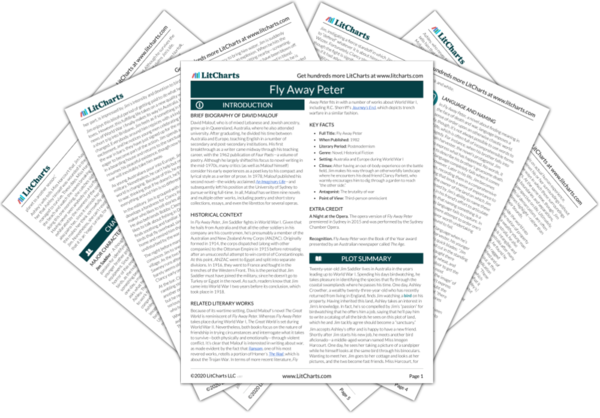Malouf never clarifies what, exactly, Ashley has on his forehead. If Jim is correct and there is a cross drawn above his friend’s eyes, then the mark is perhaps the same sign that Christian worshippers draw on their foreheads on Ash Wednesday, a day of prayer and repentance. Importantly, priests repeat this line as they smudge ash on a worshipper’s head in the shape of a cross: “Remember that you are dust, and to dust you shall return.” Although
Fly Away Peter doesn’t deal explicitly with religion, the message of impermanence that comes along with Ash Wednesday reminds readers of the novel’s engagement with death, change, and ephemerality.


